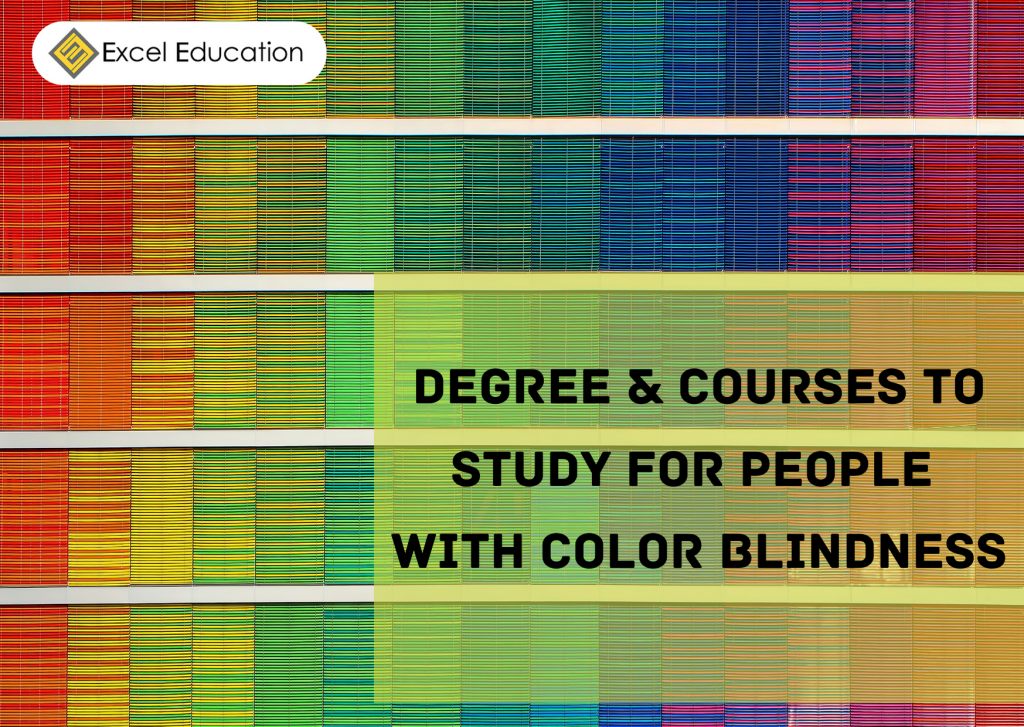
“What colour is this?” – Does this question annoy you on a different level? As a person with colour blindness, I can relate to this feeling when my friends would always point out things and expect me to guess the right colour. If I got the colour wrong, I would get laugh at but if I got it right, they’d go on to point out more things for me to guess. Initially, I felt fine, but it’s gotten annoying over time when my friends continuously do that over and over again. I felt as if I was my friends’ entertainment.
Having that experience with me, I felt my inability to distinguish colours has made it difficult and challenging for me when it comes to deciding the right career. We are restricted to many careers that we dreamed about in our childhood. But despite that, we are completely normal and we can do things that most people with normal colour vision could do too. There are ample careers out there that people like us can thrive. Thus, I wrote this article to inform students with colour blindness that there are opportunities available out there for them to decide.
What is Color Blindness?
To simply put, colour blindness is also known as a colour vision impairment where a certain group of people lack the ability to see or differentiate between certain colours. They tend to get confused with two different but similar colours, for example, mistakenly identifying purple with dark blue or red with green and vice versa.
Colourblindness can either be inherited or acquired later in life.
- Inherited color blindness is when people are born with this color vision impairment. The color blindness gene is normally passed down from close family members on the X chromosome, which also explains why men are more affected than women.
- Acquired colour blindness affects both men and women equally as they are aged. Diseases damaging the optic nerve or the retina of the eye can lead to acquired colour blindness.
The common misconception about colour blindness is that people think that the world through colour blinds’ eyes is just black and white. In reality, the majority of colour blinds really do see colours. It is estimated that a person with normal colour vision is able to see 1 million different shades of colours, while a person with colour blindness is only able to see 10,000 different colours.
Types of Colour Blindness
There are normally three types of colour blindness. The different types of colour blindness vary in the range from difficulty in differentiating certain colours to unable to see colour at all.
A. Red-Green Colour Blindness
The majority of people with colour blindness have inherited this type of defect. People with this type of colour blindness find it difficult to distinguish between red and green. There are four types of red-green colour blindness.
- Protanomaly – People with this defect sees red greener and less bright.
- Deuteranomaly – It makes the green look redder.
- Protanopia and deuteranopia make people unable to tell the difference between red and green at all.
B. Blue-Yellow Colour Blindness
This type of colour blindness is less common where people struggle to differentiate between blue and green as well as yellow and red. There are two types of blue-yellow colour blindness.
- Tritanomaly makes people difficult to see the differences between blue and green, and between yellow and red.
- Tritanopia causes people hard to identify the differences between blue and green, purple and red, and yellow and pink. The colours also would look less bright for them
C. Total Colour Blindness
Also known as monochromacy, lives up to the term “colour blindness” as people with this type of defect are completely blind to colours. The world in their point of view would look like a black and white movie running on the television. This type of people is sensitive to light as well.
Common Struggles of Colourblind People
Colourblind people tend to face difficulties in simple tasks that a normal person doesn’t see as a problem at all. For example, colour blinds are frustrated when it comes to cooking when they are unable to decide if the meat is cooked or needs more time. Choosing ripe fruits might sound easy but it’s not in the eyes of colour blinds.
Colour blindness impairs people to drive sometimes where obtaining a driver’s license is a problem. The step of getting a license is to pass the computer test that requires candidates to complete ten Ishihara colour plates without fail before proceeding to further questions. Colourblind people often find this test impossible to get all ten questions correct. Thus, they have to find an alternative way, where they will need a doctor’s approval in order to complete the computer test. This process can be a frustrating one because normal people could just pass the tests on the first attempt.
There are limitations for colour blind people to pursue certain careers that highly emphasise perceiving colours. This includes but not limited to careers such as pilot, police officer, firefighter, doctor and electrical engineer. Most of them would not realise that they are colourblind until they pursue their dream career.
Careers and Degree Choices for Colourblind
On the bright side, there are many other careers that focus more on skillset over colour vision ability. Despite the inability to differentiate colours, students are packed with hard skills and transferable skills that can be a great advantage for them to pursue careers in the following recommended fields.
Civil Engineer

Some of the roles in engineering require strong colour vision such as electrical engineers, where their role is mainly handling multi-coloured wires. However, engineering careers such as civil engineering does not mainly require colour vision because they work on blueprints and sketches that are printed in black and white. Students will need a bachelor’s degree in civil engineering and a passion for mathematics to pursue their career as a civil engineer.
Article You Might Be Interested In
Lawyers usually conduct researches, draft documents, providing counselling to clients about their legal rights arguing cases in the trial rooms. This career suits well for colourblind people because the entire career pathway does not relate to colours at all. However, students enrolling in this degree will need to have critical thinking skills and communication skills to thrive in this career.
Article You Might Be Interested In
Accountant

The main role of an accountant is to prepare and interpret financial records for a company or organization. This career does not correlate with colour vision. Instead, an accountant needs to be excellent with numbers and possess strong analytical skill. A typical degree course in accounting takes three years to complete and upon completion, graduates may pursue their careers in ACCA or CIMA to become a certified chartered accountant.
Article you might be interested in
Journalist/Copywriter

Journalist and Copywriter are two different job scope. Journalists usually work for prints, media and broadcasts. Meanwhile, copywriters work on articles and contents to promote a product or service for businesses. Both careers involve research skills and creativity to write about a specific topic. A degree in journalism is suited for students to pursue a career in either one of the profession.
Article you might be interested in
Nutrition and Dietetics

Nutritionists and dietitians help their patients maintain a healthy lifestyle and advise them on choosing the right food to eat depending on their health condition. The work involves verbal communication and paperwork. Thus, it is important to have strong communication skill and writing skills. Students may need to obtain a degree in food science and dietetics if they wish to pursue their career in consulting people on a healthy diet to help them achieve their health goals.
Article you might be interested in
About the Author

I am a freelance content writer, writing on a weekly basis while discovering my true passion..



